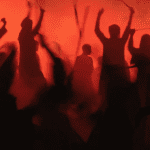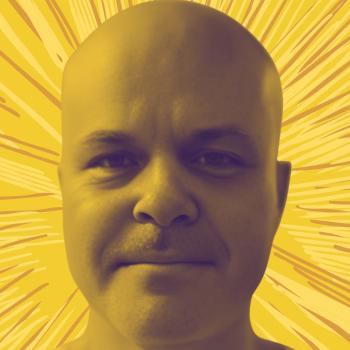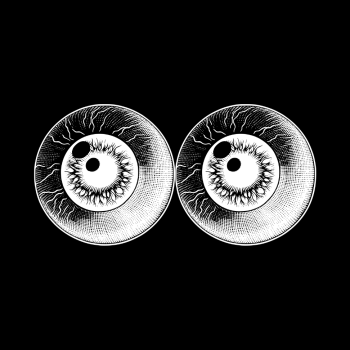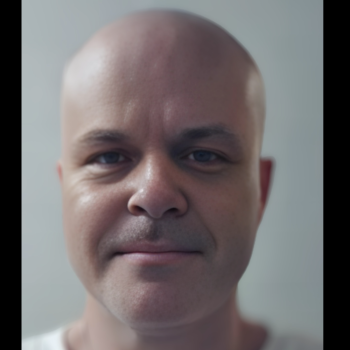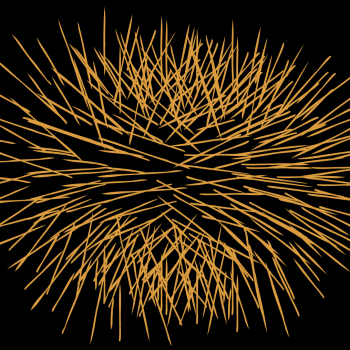
Just about two years ago, I began the process of creating The New Theology School. Since then, we’ve grown to over thirty doctoral students and nearly a dozen doctoral graduates. Presently, I serve as our Dean and as a regular mentor to our doctoral students. Our most recent graduate is The Rev. Dr. Joseph Blotz. A previous graduate of Pacific School of Religion, Dr. Blotz is a United Church of Christ minister serving as Pastor of the First Church of Christ (UCC) in Mansfield Center, Connecticut. In his doctoral project “A Greater Feast,” Dr. Blotz illustrates the beauty of what a wider conception of the Eucharist might look like. “The beauty of the love that is found in the Eucharist is that we can concentrate on more than just the physical body of Christ…namely the entire body.” Below is a link to his published book on Amazon and below that is a transcription (unedited) of a conversation that he and I had about his thoughts on the Eucharist. Glory be!!!
+anyone who has interest in our program can contact us @ [email protected]
Jeff Hood: [00:00:00] All right. Today is March the first 2022. And we are going to be engaging with, gosh, shit. Sorry. I’m messing this up. Okay. A final project here by Joseph Blotz being interviewed by Jeff Hood. And all right, so let’s get started. First of all, you tell this story about the scriptures and with how we have traditionally done that Eucharist. And I think there’s this there’s real power in talking about your transformation. Do you feel like the church is experiencing some kind of transformation at the moment? And what does that look like?
Joe Blotz: Yeah, I think there’s a lot of dissonance actually, because I [00:01:00] think many denominations or congregations that might identify themselves as progressive Christians have sort of rejected traditional understandings of adaptive Jesus, and yet their liturgical practice, their worship practices haven’t shifted at all to reflect those moves.
Jeff Hood: And so I think we’re at this moment of really needing to re-imagine or revisit. What our sacramental life and our worship life looks like, because I don’t think they’ve kept pace with one another, you know along with those lines terms of it seems like as I, as I kind of engaged your project, it seems like what you’re offering.
Shouldn’t be all that scary, even for Merck, more conservative Christians. I mean, there’s nothing I read. That’s like, oh my God, you know, this is going to completely overturn everything. It seems like I said an open invitation. Tell me, tell me about that a little bit. Was that intentional?
Joe Blotz: I [00:02:00] think I want to keep us grounded in some of those well loved well earned traditions of the church.
I think that there’s gifts that are there for us to continue to engage and rediscover and, and still do things in new ways. So I know there’s some traditions where this will be not feasible in any way. I mean, there’s some liturgical traditions. This isn’t a possibility, but I do think for a number of communities saying, this is just a tweak to what we’re already doing, that might invite us into a more expansive vision of Jesus ministry of who we are called to be and how we might be beacons of hope, justice, compassion, and love in the world.
So, yeah, I mean, I think the pieces of. When I call it institution as the warrant of the sacrament, these scriptural components that have traditionally been [00:03:00] used in the sacramental life of the church, sort of picking new and expanding the repertoire of what those are. I think it is innovative.
Jeff Hood: Wow. Very cool.
I was going to add to kind of, kind of going into that just a little bit. I don’t want to go too far down this road because I, I know this is not a, your project is a response, not necessarily a complete critique, but as far as engaging traditional ideas of. Is it necessary to overturn those ideas of the atonement in order to get to your project in order to get to these other ways of doing the Eucharist?
Joe Blotz: I think for some communities those traditional understandings can be helpful, but I think if it’s the only way we understand the death of Jesus, it’s not helpful. So. [00:04:00] Yeah, I think, you know, there there’s work out of central America on torture and Eucharist and how the idea of Jesus’ broken body for people whose bodies are also broken is liberative Christ has been there before us Christ is standing there with us.
And yet I think for others who look at that idea of Jesus was broken. So. It justifies my continuing being broken by other abusers. Ah, how do we, how do we overturn that understanding?
Jeff Hood: Would you say that it, would you say that it’s contextual?
Joe Blotz: Absolutely. And I think the problem with having one narrative.
That we use within the Eucharist is that it doesn’t allow for context. Right. And it just prioritizes that particular understanding. And I think one [00:05:00] prevailing reading of what the death of Jesus means and what that institution heritage means.
Jeff Hood: You know, I Slide this in there. And then we can go on the the different parts of the project. But, you know, one of the things that I’ve always talked about is that I’ve always called myself. I reformed Universalist in that, you know, that classic way of viewing The atonement viewing, whatever happened on the cross as sufficient for all people throughout time and eternity.
And you know, I’ve always said that I think that’s the only honest way to be both a Christian I traditional Orthodox Christian and also a Universalist. But I think sometimes when we go down that road And as you can see me surrounded by all my books as we go down that intellectual road.
One of the things that we we neglect is our feelings. And I feel, I [00:06:00] feel, I feel like your project really engages feelings. And I think that that’s, I think that because ultimately in Christian theology, so often we’ve been told that. Not to trust our feelings and, you know and even when we think about you know, we’re coming up on land and as we think about you know, what Christ experienced, we’re almost encouraged to to think about it.
From an intellectual space, but not necessarily from a feelings space. What does we know? We think about the agony and it’s almost like every time I hear a message about the the agony of Christ. Well it goes one of two directions. I feel like. The the more conservative traditions wants you to think about, you know, how bloody and how intense and death, and, you know, they really want you to go down that road.
But on the other hand, I and I, [00:07:00] I won’t get, go again too far down this road, but I w I was living in Oxford, Mississippi And I was at old miss. I was teaching, teaching and doing work on a doctorate. I never finished at at old miss, but I remember on a Ash Wednesday that year, I went to the local United Methodist church.
And I feel like I always poopoo on the United Methodists. So forgive me. But there was a woman who got up and gave an Ash Wednesday service and. I don’t remember a lot about it, but I do remember she using a duck call and saying that the duck call was part of God’s call and to Lynn and all this kind of stuff.
And it was like, this is absolutely foolish. Like this is absolutely strange and foolish. And I guess to, to wrap it back around or to circle back around, it seems like. What you are doing is is neither strange nor foolish. And I appreciate that [00:08:00] because it is an invitation to a place that that takes that takes tradition and takes the geology.
Seriously, and I am, I am. Exhausted and tired of progressive Christians thinking that they have to make a mockery of our traditions in order to you know, in order to be accepted in the wider culture. You know, I am all about like inclusion and I want everyone to feel like they have a part, but at the same time, it’s also like, You know, we are Christians and it’s okay to be a Christian.
And so I appreciate that about your project. I felt like as I finished, it’s okay to follow Jesus. And it’s okay to engage, you know, these traditions in ways that are Th that, that understand that that tradition is important.
Joe Blotz: All right. I love Jesus. And I think [00:09:00] that the challenge, I think of traditional theologies of the atonement is this idea of the first person of the Trinity, the father, the creator, whatever language you wanna use as requiring the suffering and the death of.
The second person of the Trinity. So it’s, it’s that, that I think is, is the linchpin of this. Somehow God requires this pain and suffering as opposed to. Guide was willing to enter into the human experience, the human feelings fully in Jesus and experience the worst of what humanity had to offer towards, towards God and towards its itself as, as a fellow human.
And that God was willing to, to enter into that fully.
Jeff Hood: Yes. I love that. You know, one of the things that I wanted to. To touch on as far as the, [00:10:00] the, the first part of your project goes is, you know, you you’ve really pressed into this idea that praying shapes, believing, and you know, this idea that what we say at the table matters to how we engage issues of love, justice, grace, mercy ideas of righteousness.
I mean, obviously. Peanut, when, when Christ tells us greater love has no one than this than to give your life for your friends. I mean, obviously that has a lot of different ways of looking at it, but when I historically you know, I was always taught. Well, you know, that’s about the blood dripping out and that lashes, I mean, this real passion of the Christ way of viewing things.
But as I have read through, you know, your projects, I’ve thought to myself, okay. If I can if I can see what happened [00:11:00] as an act of love, more than an act of violence. Then, then that creates space. That is that is really beautiful and accessible. I mean, we have too much violence in our culture.
But tell me about. When you were creating kind of this praying is believing kind of space. I’m assuming that you thought a lot about what it means to foster love in the space of orthodoxy as just orthodoxy for the sake of orthodoxy.
Joe Blotz: Well, and I think too thinking about it as a parent, right? The language we use around our children matters.
If we constantly tell them that they’re bad or naughty or behaving a particular way, they start to internalize that and take on that idea. As I’m bad, I’m not, I’m not a good person. And I think the same works for [00:12:00] Christian communities. If we are formed by a theology that at its core is about an violent act of redemption.
I think it invites us to see violence as redemptive in the rest of our lives. If we are formed by a God. Enters into humanness and enters into creation and invites holiness in the midst of our world. I think it invites us to incarnate God’s presence and God’s action in our lives.
Jeff Hood: Hmm. Well, I love that.
You just had a, a word that I love incarnation you know, what does it’s interesting that There’s this idea historically that Jesus, the body and blood, it is incarnate and in the Ukraine. But at the same time, it seems like your project is placing the whole person of Jesus into the [00:13:00] Eucharist.
I mean, if you’re just feasting on bloods, like you’re a vampire and you know, just the body you’re accountable, but it seems like if you allow the whole person to come into the Eucharist, you’re feasting on something that is a little bit deeper than just the body.
Joe Blotz: Well, because I think that’s what God invites us to write his guidelines, the whole of our persons to be engaged in the life of faithful living and work of building up the reign of God in our world,
Jeff Hood: you know? You said earlier that similarly I’ve thought about, you said that this is not necessarily open for you know, folks coming from more conservative traditions, but I do think that there is an argument to be made that you don’t have to lose your tradition to engage your project. Like I think that, that there [00:14:00] is, there is space for a confluence.
Joe Blotz: Yeah, I think my, and if I use the word conservative, it was not, not unintended. I think it was more national traditions or hierarchical traditions that dictate the kind of prayer or words that can be used. And specifically, I mean, you talked about the understanding of Jesus last becoming manifest in the sacrament traditions.
Ascribed to a physical change within the bread and the cup. A lot of those traditions say that the words, this is my body, this is my blood. Have to be present in order for that, that change to be effected. And the proposals I come up with. Largely remove those words from, from Eucharistic rain and the majority of circumstances.
And so I think for those traditions, it could be a stretch, you know, to, to adopt this, this [00:15:00] idea.
Jeff Hood: Could you do both?, Just out of curiosity.
Joe Blotz: I think it’s certainly a possibility. I’m not saying it’s just another, another way. Yeah, I get that. I just, I guess I’m just a, sometimes I have these tendencies to get to this space of experiment.
Jeff Hood: And anyways, just curious, because, you know, I guess it’s, you know, as you talk about in the second part of the project, I mean this whole nature of. Tradition and, you know, history and, and such things. You know, I, I do think that one of the problems I see and more progressive spaces of the church is this fear that they’re going to be considered unorthodox that, you know, they, they’re trying so hard to be Progress, I guess relevant is I think is the best word [00:16:00] relevant, but they’re also afraid of, you know, being open to critique.
And, you know, I, I was, I’ve been thinking about this as far as the way people spend so much time on the clobber passages. I realized that for some people that is really important for me, it’s kind of like, Maybe they’re just wrong. Like, you know what I’m saying? And and it’s okay. Like to say, maybe they’re just wrong.
But I think also in your project, you do a really good job of saying this can be right. And that’s the, like, I don’t want to say that’s the end of the conversation, cause that’s not fair, but it’s a. It’s almost like you’re offering a different path and it doesn’t have to spend all of its time arguing with the other paths.
Like I feel, I feel like to, to do this, like to get up and, you know, and do this and create this different practice or engage with different practice. You don’t have to spend all this time talking about how terrible the [00:17:00] other traditions are. And I think that’s a beautiful thing. It’s not really.
Joe Blotz: And I think to say that it has value and can still be maintained as one part of a whole, right.
I’m not saying that we should never say that or recite the story of the last supper or that that text has no value. I think it has immense value, but I think the exclusive use of it. Community and celebration and our churches can have a deleterious effect on Christian community. And especially when Jesus’s ministry was rooted in a multiplicity of meal practices.
And that table fellowship was one way he challenged the status quo. Okay. And multiplicity that’s right.
Jeff Hood: I love that multiplicity. Yeah. You know, I was thinking you know, as we talk about de-centering you know, we are like, the goal is to like, be centered on [00:18:00] the work, the life, death, and resurrection of Christ and traditional liturgy does seem to center on the death of Christ as opposed to the life and the resurrection.
And, you know, I, I I am one of these crazy Orthodox guys that does believe in a literal resurrection. But when I say that, I’ve always said does that mean that you could have caught it on camera? Does that mean, you know, I don’t, I don’t know. I, I believe in the beauty of. What happened that there was a miraculous occurrence that has changed the world.
And I say all that to simply say that it seems like in the, in the Eucharist, we are celebrating the miraculous life of Jesus and the debts in it. That’s important. And as opposed to this space that celebrates only. The only violence.
Joe Blotz: But what does the resurrection also mean? You think it has a [00:19:00] lot to say about the goodness of the body, the goodness of creation that God continues to work within these Murphy things.
Even in the midst of violence and death and that even they will endure, I think there’s real power in that.
Jeff Hood: You know, I was watching earlier in in Ukraine there was a priest giving a communion in a. In one of the bunkers below Keith and I just thought to myself, you know, I don’t know what what he was saying.
My assumption is he was using some kind of traditional Orthodox liturgy, but it did make me think we do this too. You know, as the old saying goes afflict the comfortable and comfort the afflicted and that, you know, there’s a multiplicity of reasons that we do this. And I was thinking, you know, as [00:20:00] this priest was performing the Eucharist, he’s not doing this, you know, for the theological, you need to believe in substitutionary atonement.
He’s doing this to come. The people and it seems like we should, that’s one of the main reasons we do this is to provide comfort and I love the way that you are creating a space of pastoral care and comfort. And it seems like it seems like I am when I read through You know, these Eucharistic prayers that you’ve created and different ways of doing the Eucharist that you’ve created.
I feel like I’m on, I’m on kind of the couch, like a, you know, I’m being, I can talk, I can engage. You know, instead of feeling like I am being acted upon, it does feel like I’m being active with, and that my needs are being engaged.
Joe Blotz: And my hope is that it does [00:21:00] afflict the comfortable, right? Like the idea that Jesus calls us to share is disruptive to some, to some people.
I think the idea that Jesus overturns the tables and the temple is disruptive and uncomfortable and and it should make us uncomfortable.
Yeah, I don’t really like people enough to want to do this all the time. But you know, I was thinking in terms of you know,
Jeff Hood: I think this conversation is really engaging part four and This whole idea that there is, there is a richer space, you know, w we don’t have to come at this from a place of you know, destruction.
We can come at this from a space of building and looking to the future and reconstruction. What does the church look like 2000 years from now? And [00:22:00] hopefully it is a, it is a more vibrant place than simply. Telling people that they got to eat body and blood in order for them to feel better.
Joe Blotz: And that this is all about getting into habits, right?
Like, you know there’s a beautiful tradition in the Catholic church. People being given Bayada come right before they die being given communion right before they die.
Jeff Hood: Sort of, as a, as I thought, I thought you, when you said that, for whatever reason, my mind immediately went to Viagra. And I know, I didn’t know.
I was thinking, man, I didn’t know. I ain’t never heard of that, but okay. Sorry.
Joe Blotz: But this idea that it’s food for the journey, I think is really powerful, but it’s not just food tender journey, right? It’s food for the journey of building having here, having this, not this future [00:23:00] experience. I think Jesus’ ministry was continually about having been.
Jeff Hood: That’s right. Yeah. I love that. Okay. So could we go through the road to a mass Eucharistic prayer? Luke 24 are coming adapted from Luke 24. How about you be one? I’ll be too. I feel like this is going to be a Broadway play.
Joe Blotz: (1) / Jeff Hood: (2)
A Eucharistic Prayer Based on the Road to Emmaus Luke 24
1- It was on that same day… 2- The day of resurrection… 1- When two of the disciples were making their way from Jerusalem to Emmaus 2- They had heard the rumors… 1- Listened to the rumblings… 2- But they could not allow themselves to believe… 1- They had seen it, after all… 2- The betrayal in the garden… 1- The agony upon the cross… 2- The body behind the stone. 1- And yet now… 2- Some of the women… 1- Claimed to have seen him alive… 2- Risen… 1- The stone rolled away… 2- The tomb empty… 1- And it was as they were discussing these things… 2- Pouring over them in their hearts… 1- That a stranger came to join them… 2- A very strange stranger… 1- Who seemed to know nothing of the news… 2- and yet who explained the story… 1- He opened up the Scriptures… 2- Taught of how the Messiah had to suffer and enter into glory… 1- And their hearts began to burn within them… 2- Set ablaze with Divine love… 1- When they reached the place to which they were going… 2- When they thought the journey was over…. 1- They invited this strange stranger to stay with them… 2- They couldn’t bear to be parted from him… 1- There was something in his voice… 2- in his eyes… 1- in the way he answered their questions… 2- in the way he spoke their names… 1- As they sat down at table, the stranger broke the bread… 2- He spoke the words of blessing… 1- And they remembered… 2- Remembered that night in the upper room… 1- the meal shared on the hillside… 2- dinner at Mary and Martha’s… 1- lunch with Matthew the tax collector… 2- breakfast with Peter’s mother-in-law… 1- It was as if scales had fallen from their eyes… 2- As if they could see, really see, for the first time… 1- It was him all along… 2- Walking with them… 1- Sharing the story… 2- Opening the Scriptures… 1- Jesus… 2- Jesus… 1- Alive… 2- Risen… 1- With them… 2- In the breaking of bread… 1- In that moment, he disappeared from their sight… 2- Yet he was still with them… 1- Always… 2- Forever… 1- In the breaking of the bread… 2- In the sharing of the cup… 1- So come now Holy Spirit… 2- Bless our eating and our drinking this bread and this cup… 1- May our eyes might be opened… 2- may our hearts be set on fire… 1-and may we recognize the Risen One in our midst… 2- in one another… 1- and in all for whom Christ lived and died and lives again. 2- Amen. 1- Amen. 1 & 2- Amen.
Jeff Hood: Man, man, this shit is beautiful. I love it, man. I do, man. It is. So man, I mean, like I, like, I felt my heart burning is we went through that, man. It, it really is. Joe, this is I think quite the accomplishment I really do. Like, I, I I feel like I just,
it’s almost as if I am doing. Like the liturgy sets me down and helps me to see what it was like to see, to hear, to know, to, to experience the resurrection. You know, in a way that that sticks, I mean, it sticks with you. And so as we wrap it up, I just want to, to let you know, [00:27:00] and really just Yeah.
Just, just celebrate this project because it really is. It is so important to offer. To offer space as taking a little bit more of a, to likeon approach, to a space beyond space, a beauty beyond beauty, a light beyond light. And for that matter, an incarnation beyond incarnation where we are experiencing Jesus, we are experiencing each other and You know, like I said, I just think this is absolutely a beautiful, is there anything else you want to add?
Joe Blotz: I would just say, you know, I’m grateful for the space, the beauty that you provided and enabling this project to come to fruition. The companionship and journey that you provided over the past year, I’m not sure that it would have come to birth your midwifing and not to take so well. Well, we got we’ve got many years to come to do to do more work, my [00:28:00] friend.
Jeff Hood: And I just want again, I want to speak before we go. I’ve I would feel remiss if I just didn’t say. This is absolutely beautiful. And hearing you talk about it you know, it was beautiful before, but hearing you talk about it has taken it to the next level for me, and y’all, this is a good looking guy.
If you could see him and hear these words, man, I’m telling you, but with all of that said thank you so much, Joe. And I’m gonna wrap this up there.


